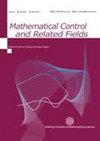广义动态传染索赔模型下一般保险公司最优再保险投资问题
IF 0.9
4区 数学
Q1 MATHEMATICS
引用次数: 0
摘要
本文研究了一家普通保险公司同时持有一家保险公司和一家再保险公司股份的最优管理问题。一般公司的目标是推导出均值-方差准则下的均衡再保险投资策略。索赔过程由[18]引入的广义复合动态传染过程描述,该过程允许索赔到达的自激励和外部激励聚类效应,风险资产的过程由跳跃扩散模型描述。基于实际考虑,我们假设外部激励的聚类效应会同时影响风险资产的价格和索赔强度。为了克服均值-方差准则导致的不一致性问题,我们将优化问题表述为嵌入式博弈,并通过相应的扩展Hamilton-Jacobi-Bellman方程求解。得到了一个依赖于常微分方程解的再保险投资均衡策略。此外,我们通过大量的数学分析和数值例子证明了推导出的均衡策略及其背后的经济含义。本文章由计算机程序翻译,如有差异,请以英文原文为准。
Optimal reinsurance-investment problem for a general insurance company under a generalized dynamic contagion claim model
In this paper, we study an optimal management problem for a general insurance company which holds shares of an insurance company and a reinsurance company. The general company aims to derive the equilibrium reinsurance-investment strategy under the mean-variance criterion. The claim process described by a generalized compound dynamic contagion process introduced by [18] which allows for self-exciting and externally-exciting clustering effect for the claim arrivals and the processes of the risky assets are described by the jump-diffusion models. Based on practical considerations, we suppose that the externally-exciting clustering effect will simultaneously affect both the price of risky assets and the intensity of claims. To overcome the inconsistency issue caused by the mean-variance criterion, we formulate the optimization problem as an embedded game and solve it via a corresponding extended Hamilton-Jacobi-Bellman equation. The equilibrium reinsurance-investment strategy is obtained, which depends on a solution to an ordinary differential equation. In addition, we demonstrate the derived equilibrium strategy and the economic implications behind it through a large number of mathematical analysis and numerical examples.
求助全文
通过发布文献求助,成功后即可免费获取论文全文。
去求助
来源期刊

Mathematical Control and Related Fields
MATHEMATICS, APPLIED-MATHEMATICS
CiteScore
2.50
自引率
8.30%
发文量
67
期刊介绍:
MCRF aims to publish original research as well as expository papers on mathematical control theory and related fields. The goal is to provide a complete and reliable source of mathematical methods and results in this field. The journal will also accept papers from some related fields such as differential equations, functional analysis, probability theory and stochastic analysis, inverse problems, optimization, numerical computation, mathematical finance, information theory, game theory, system theory, etc., provided that they have some intrinsic connections with control theory.
 求助内容:
求助内容: 应助结果提醒方式:
应助结果提醒方式:


